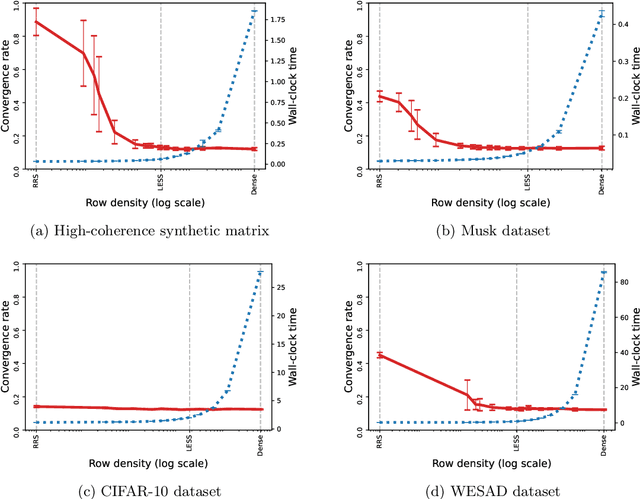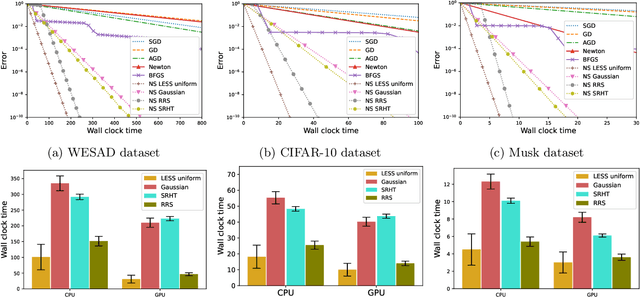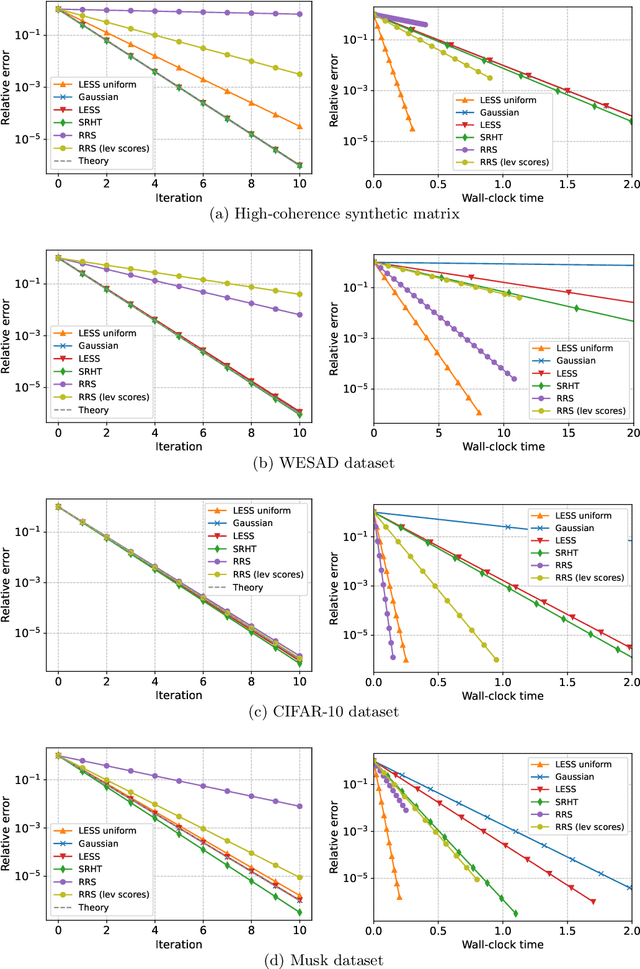Newton-LESS: Sparsification without Trade-offs for the Sketched Newton Update
Paper and Code
Jul 15, 2021



In second-order optimization, a potential bottleneck can be computing the Hessian matrix of the optimized function at every iteration. Randomized sketching has emerged as a powerful technique for constructing estimates of the Hessian which can be used to perform approximate Newton steps. This involves multiplication by a random sketching matrix, which introduces a trade-off between the computational cost of sketching and the convergence rate of the optimization algorithm. A theoretically desirable but practically much too expensive choice is to use a dense Gaussian sketching matrix, which produces unbiased estimates of the exact Newton step and which offers strong problem-independent convergence guarantees. We show that the Gaussian sketching matrix can be drastically sparsified, significantly reducing the computational cost of sketching, without substantially affecting its convergence properties. This approach, called Newton-LESS, is based on a recently introduced sketching technique: LEverage Score Sparsified (LESS) embeddings. We prove that Newton-LESS enjoys nearly the same problem-independent local convergence rate as Gaussian embeddings, not just up to constant factors but even down to lower order terms, for a large class of optimization tasks. In particular, this leads to a new state-of-the-art convergence result for an iterative least squares solver. Finally, we extend LESS embeddings to include uniformly sparsified random sign matrices which can be implemented efficiently and which perform well in numerical experiments.
 Add to Chrome
Add to Chrome Add to Firefox
Add to Firefox Add to Edge
Add to Edge